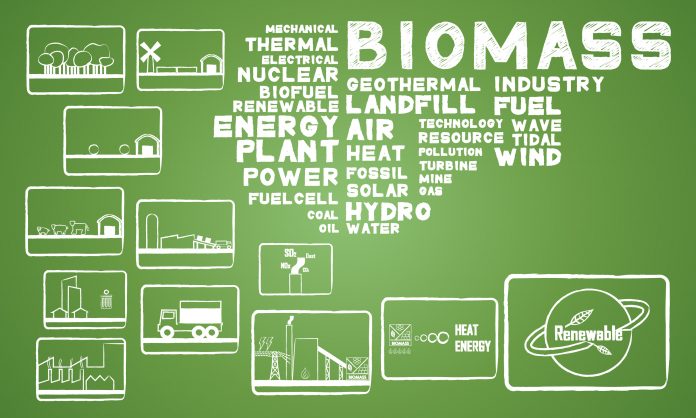Insight into the emerging bioeconomy, is provided here by Michael Berube, Acting Deputy Assistant Secretary for Transportation in the Office of Energy Efficiency and Renewable Energy at the U.S. Department of Energy
The U.S. Department of Energy’s (DOE’s) Bioenergy Technologies Office (BETO) works in partnership with key public and private stakeholders to develop technologies for producing advanced biofuels and bioproducts from non-food biomass resources, a key component of a thriving bioeconomy.
The creation of a robust, next-generation domestic bioeconomy can provide Americans with renewable energy alternatives that:
- Lower transportation sector emissions.
- Stimulate the domestic economy.
- Enhance energy security.
Biomass feedstocks fuel the bioeconomy
Biomass is a source of renewable carbon derived from plant- and algae-based material or waste streams that can be used for energy. Examples include:
- Agricultural residues (e.g., corn stover and wheat straw).
- Energy crops (e.g., switchgrass, miscanthus, energy cane, sorghum, hybrid poplars, and shrub willows).
- Forest residues (e.g., tops and branch trimmings).
- Industrial and other wastes (e.g., sorted municipal solid waste, food waste, sludges, and waste gases like carbon monoxide and carbon dioxide).
Potential renewable product slates made from biomass include:
- Biofuels for ground transportation (both light-duty and heavy-duty vehicles).
- Off-road transportation fuels (aviation and marine).
- Biogas.
- Bioproducts.
- Biopower.
- Renewable home heating oil.
BETO supports research and development (R&D) and thorough analysis to ensure that these product slates deliver environmental benefits versus incumbent fuels, and that energy production does not impede markets for food. In certain cases, terrestrial and algal biomass can provide direct benefits to the environment, such as improving water and soil quality. For more information on these strategies, read BETO’s recent report titled, Bio-Restore Workshop Summary Report.
BETO R&D: Transforming biomass into renewable fuels and products
BETO drives the transformation of these renewable carbon and waste resources into biofuels, bioproducts, and biopower via biochemical, thermochemical, and hybrid conversion pathways.
A key area of emphasis is the R&D of biofuels for aviation, marine, and heavy-duty transportation. These sectors will continue to rely on liquid transportation fuels for the foreseeable future due to a lack of competitive alternatives and the significant time and investment required to turnover these fleets and the associated fuelling infrastructure.
While biofuels offer a low-carbon liquid fuel for transportation, current market conditions are not conducive to widespread commercial success. BETO and industry recognise the need to drive down costs in order to become a truly affordable option. The BETO report, Integrated Strategies to Enable Lower-Cost Biofuels, outlines five key strategies needed to achieve lower fuel production costs in an integrated biorefinery and provides high-level research needs across the biofuel supply chain.
The synergy between biofuels and bioproducts
One key strategy for improving the economic viability of biofuels is bioproducts — renewable chemicals or materials made from biomass. By investing in bioproduct R&D, BETO can lower technology risk and support scale-up for biofuels. Bioproducts rely on the same feedstocks, use the same infrastructure, and are made using many of the same processes and technologies as biofuels. The difference is that these high-value bioproducts can fetch a higher-price than fuels and can be competitively produced at lower volumes.
In today’s bioeconomy, we see clear opportunities for high-value bioproducts. A recent success includes the development of a method to make polyurethane foam from 100% renewable algae instead of conventional petroleum. Polyurethane foam can be found in all sorts of products including insulation, car mouldings, flip flops, and mattresses. The University of California, San Diego (UCSD) developed the process, which was made possible by BETO funding.
Successful commercialisation and deployment of bioproducts like these have the potential to build the bioeconomy supply chain, lower technology risk, and expand infrastructure to enable biofuels in the future.
BETO’s stakeholder partnerships advance the bioeconomy
BETO partners with a broad range of public and private stakeholders to identify R&D challenges and define strategies for economically and environmentally sustainable biofuels and bioproducts. These stakeholders include:
- Industrial entities.
- Academic institutions.
- Trade and professional associations.
- Investment and financial communities.
- Government and environmental organisations.
An example of developing partnerships with the aforementioned stakeholders has coalesced in DOE’s recently formed Plastics Innovation Challenge. This programme uses a coordinated suite of funding opportunities, critical partnerships, and other programmes to accelerate innovations to reduce plastic waste and position the U.S. as a leader in advanced plastics recycling — or upcycling — and “recycle by design” manufacturing technologies.
The scientific research drives the bioeconomy
Leading scientists at DOE National Laboratories and partner universities pursue the advancement of science for biomass feedstock production, conversion, and scale-up.
BETO’s scientific successes enable private industry to subsequently demonstrate and commercially deploy technologies in integrated biorefineries that can produce multiple product streams to maximise revenue from a biomass resource and a single site.
Like biorefineries that currently produce ethanol from starch along with other products such as distiller’s dry grain, integrated biorefineries take advantage of diverse biomass components to produce multiple products that maximise value and minimise waste from biomass and other feedstocks.
BETO funding opportunities seed innovation
BETO uses open and competitive Funding Opportunity Announcements (FOAs) to ensure that it funds the highest calibre R&D in support of its mission and goals. FOAs are open to universities, national laboratories, and the private sector and encourage collaborative partnerships among stakeholders.
In July 2020, BETO announced 33 projects selected to receive up to $97 million in federal funds to conduct high-impact technology R&D via the 2020 Multi-Topic Funding Opportunity Announcement.
Bioenergy consortia: The spirit of National Laboratory collaboration
Additional avenues to partner with stakeholders include leveraging the bioenergy consortia that target specific high-impact bioenergy research areas. BETO provides funding for eight bioenergy industry consortia which use the capabilities of the National Laboratory system to overcome the challenges of researching and developing competitive, cost-effective, and scalable fuels and products made from renewable biomass.
Other avenues for engagement with BETO
BETO engages with key public and private stakeholders to help guide strategic R&D planning. This is done through leveraging stakeholder expertise as project and programme reviewers for FOAs and National Laboratory project selection merit review phases as well as BETO’s bi-annual Peer Review Conference. Additionally, BETO engages with its stakeholders through avenues such as Requests for Information, webinars, workshops, and conferences.
The future is bright for the U.S. bioeconomy
A robust bioenergy industry will not only provide Americans with renewable energy alternatives, but also generate a variety of U.S. jobs across several sectors, from farming and trucking to microbiology and chemical engineering. Bioenergy and bioproduct production has significant potential to serve as a vehicle for domestic job creation and economic opportunity for communities throughout the nation.
BETO’s constant support of the next-generation domestic bioenergy industry is essential for the U.S. to remain competitive in the global biomass-based fuel, product, and chemical markets.











